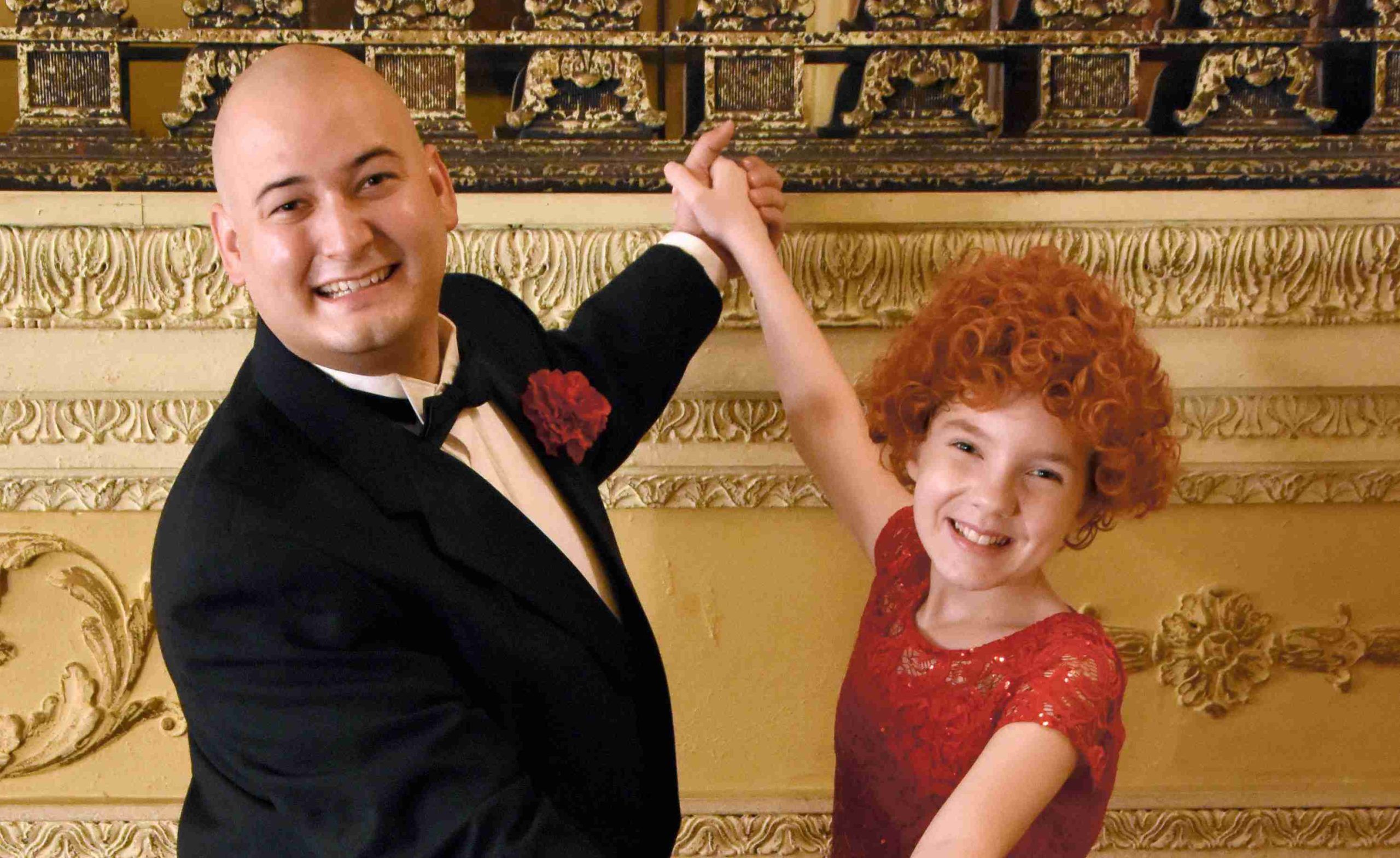Fort Wayne Civic Theatre’s production of Annie needed a second chance when COVID-19 drove the musical out of its established home at the Arts United Center.
The show could not be performed safely and profitably there.
Annie’s homelessness didn’t last long. The Embassy Theatre, left dark by national touring acts, has taken in a lot of orphaned local shows and events this fall.
The familiar plot of the show — impossibly optimistic orphan finds love and security in the home of a formerly grouchy mogul — has been subjected to minimal tinkering since its Broadway debut in 1977.
But when the Civic Theatre’s production opens in early November, the characters will contend with something they never before faced: a flu epidemic.
Since the cast and crew are required to mask up for COVID, the story of the show was altered slightly to explain the masking.
Clinging to Hope
The show’s director, Doug King, said the masks aren’t the only thing that makes the show timely.
In a phone interview, King said people looked to the Little Orphan Annie comic strip, and the radio adaptation of it, for hope during the Great Depression.
“With COVID-19 going on,” he said, “the interesting parallel is that people were clinging to the message of hope and adventure and living through a crisis and that’s the position we find ourselves in 90 years later. For the COVID generation, we hope Annie brings the same message of hope and restoration and adventure.”
Annie herself is a metaphor for something many of us are yearning for right now, King said.
“Annie is this small package, a rather insignificant orphan, who can walk in and change the lives of someone so greatly,” he said. “None of us know what that tiny package could be. It could be someone smiling at you or donating something or giving you a second chance.”
Rare Collaboration
Collaborations between the Embassy and the Civic Theatre have been few and far between over the years.
Designated Civic actors have appeared on the Embassy stage only a couple of times in the last three decades, according to the Civic’s executive and artistic director Phillip Colglazier.
Arts United Center is a nice space, but the Embassy’s historical prestige and opulence grant Annie’s cast and crew license to treat this shift as a major upgrade.
One actor who seems particularly excited about the move is Aaron Mann, who plays Daddy Warbucks.
“Oh, man,” he effused. “I have never appeared on the Embassy stage. I have attended so many things there. It’s so exciting to be in that venue and to be doing something we love to do.”
Mann had a national theater career before returning to northeast Indiana to teach and coach.
Warbucks isn’t usually cited as a “bucket list” role, but Mann said he has always wanted to play him.
He said that he shaved his head as soon as he heard he’d earned the part, a step in the process of playing Daddy Warbucks that other actors might be more reluctant to take.
“I see so much under the surface,” Mann said of Warbucks. “They mention his backstory briefly in the play. But if you really apply that throughout, he is a man who is self-made. He had nothing. He came from nothing. That’s why he identifies with Annie. He sees someone who is trying to make it through a really tough situation and in a tough world. And that’s very relatable in these times.”
Warbucks is constantly adjusting to new information, Mann said.
“He seems very complicated to me,” he said. “He comes out with a no-nonsense attitude. His relationship with Annie changes him. She turns his world upside down. He gets softer. He realizes what he was missing all along: companionship and mentorship of someone who needs a helping hand.”
Impressive Young Actress
Annie is played in this production by Woodside Middle School’s Avery Garrett, who was so impressive a year ago as Susan Walker in the Civic’s production of Miracle on 34th Street: The Musical.
Avery’s mother, Shannon, said Annie and her daughter have a lot in common.
“I think so,” she said. “I think she’s very outgoing and is a witty and spitfire kind of character like Annie.”
Like Mann, Avery, 11, is thrilled to be taking the Embassy stage.
“It makes me feel like a Broadway actor because it’s so big and so fancy,” she said.
A requirement of playing Annie that patrons probably don’t give much thought to has to do with dog wrangling. Annie’s dog, Sandy, is often played by an undisciplined but charismatic canine actor that flagrantly ignores cues and blocking.
The actor who plays Annie is usually charged with the task of controlling the dog while pretending she is unqualifiedly delighted with the dog.
“He’s a very slobbery dog,” she said. “Super excited. It’s been taking him a while to get used to me. The orphans and I are overwhelmed by all we have to focus on in a scene, and I am trying to walk Sandy across the stage. And he’s running all over the place.”
Luckily, Avery said she is “100 percent a dog person.” Also, she has a secret supply of peanut butter and cheese snacks.
An atypical aspect of this production of Annie is doubled choreography or something very much like it. The backstage movements, designed to limit interactions between cast and crew members, are almost as complicated as the onstage ones.
The 2,471-seat Embassy Theatre is limited to seating roughly 530 patrons for each performance of the Civic’s Annie, according to Elise Ramel, marketing director for the Civic. Masks are required everywhere but the seats.
It may be a hard knock life these days, but the Civic’s Annie is making sure the sun’ll come out tomorrow for theater fans.



